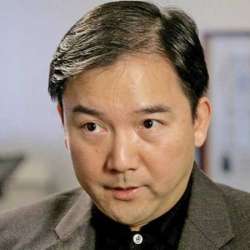
Suspected Drug Smuggler Zhenli Ye Gon Is Thought to Have Wagered $90 Mil to $125 Mil at the Venetian Casino
Sheldon Adelson paid the United States government a $47.4 million fine to avoid criminal charges for money laundering go away. The charges stem from an incident in 2006 and 2007, in which a notorious Chinese-Mexican businessman by the name of Zhenli Ye Gon deposited $45 million in the Venetian Casino.
Zhenli Ye Gon is under investigation for drug smuggling, so his deposits into the Venetian appear to have been an attempt to launder money through the Las Vegas casino. Suspicious transactions are supposed to be reported to the U.S. government, but this particular deal was never reported. For that reason, Sheldon Adelson and the Las Vegas Sands Corporation, which owns the Venetian, has to pay a fine for all the money laundered, plus interest.
Las Vegas Sands Deals with US Government
The fine was agreed upon between the US Department of Justice and the Las Vegas Sands Corp this past Monday night. According to the New York Daily News, the Justice Department has been building the case for two years. That would trace the investigation back to 2012, the same year Sheldon Adelson paid $90 million to Republican campaigns to see his conservative ideas championed across the nation. Much of that money went to see Mitt Romney defeat Barack Obama’s attempt for reelection. The election was a victory for Obama. Now the Department of Justice announces a 2-year investigation in Sheldon Adelson’s company’s wrongdoing.
The case involves vast sums of money and what appears to be a clear set of criminal offenses, though. The fact is, the Venetian allowed several suspicious deposits without reporting them to U.S. authorities. The Bush Administration tended to look the other way in oversight of American business interests, so the fact the suspected drug money passed through the Venetian in 2006 and 2007 is important. That being said, the NY Daily News reports that the transactions were “complex” and designed to avoid detection.
Lost $90 Million at The Venetian
Ye Gon lost over $90 million at the Venetian Casino over the course of two years. US Attorney Andre Birotte Jr, who works for the Central District in California, told the newspapers, “For the first time, a casino has faced the very real possibility of a federal criminal case for failing to properly report suspicious funds received from a gambler.”
Birotte added, “This is also the first time a casino has agreed to return those funds to the government. All companies, especially casinos, are now on notice that America’s anti-money laundering laws apply to all people and every corporation, even if that company risks losing its most profitable customer.”
Sheldon Adelson’s 2014 Downturn
$47 million is small change to Sheldon Adelson, who began the year at the 8th-richest person on the planet. It was estimated Adelson was worth $39 billion to start the year, though some estimates suggest he has lost $10 billion or more over the course of 2014. Most of the money lost came through the loss in stock price for the Las Vegas Sands Corp, which has lost 30% of its value in 2014.
The lost share price stems from the collapse of the Macau land-based gaming industry. Chinese premier Xi Jinping launched an anti-corruption campaign throughout China in 2013 and 2014, targeting corrupt Communist Party officials and high-dollar businessmen. Eventually, the investigations led to Macau, which was the site of major attempts to launder money and pass the funds out of the country, presumably to foreign bank accounts. When Macau casinos started being investigated, most Chinese high rollers stopped gambling in the casinos. The Venetian Macau has lost between 30% and 40% of its revenue in the last several months. Thus, paying a 47 million dollar fine to the US government is almost of no consequence to Adelson, though he is no only the 23rd-wealthiest person on Earth.
Of the past year, Sheldon Adelson has led a campaign to ban online gambling in the United States. Adelson claims online gambling is a dangerous form of gambling, because of identity theft and because underage gamblers could be led astray. He also thinks problem gamblers are more likely to have troubles online, while Internet casinos and poker rooms could be used by offshore companies to launder money for organized crime.
About Zhenli Ye Gon
Zhenli Ye Gon is the head of Unimed Pharm Chem Mexico. Among its many other importing businesses, Unimed had a Mexican license from 2002 to 2004 to import pseudoephedrine and ephedrine products into Mexico. When the license expired on July 1, 2005, it is alleged Zhenli Ye Gon and associates continued to import these pharmeceutical drugs, which are used to make methamphetamines, into Mexico.
In the time in which these drug shipments are thought to have happened, only 4 of 291 Unimed shipments are under suspicion. The U.S. government nevertheless had an indictment against Zhenli Ye Gon from 2007 to 2009, when a US court dismissed the charges with prejudice. The charges coincided with a Mexican drug case against the businessman, after Mexican authorities raided his home and found over $200 million in cash being stored there.
Though he denies the charges, Zhenli Ye Gon is accused of being a member of the Sinaloa Cartel, one of the most notorious Mexican drug cartels. Since 2002, Ye Gon has been a Mexican citizen, though he was a Chinese citizen before that time. Until he was indicted by the American government, Ye Gon was assumed to be a wealthy Mexican-Chinese businessman.
